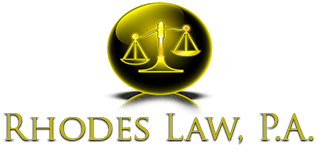What does one do if a loved one has passed with no will or trust?

When a family member passes away without a will or trust (called dying intestate), their estate is distributed according to the laws of the state they lived in. Here's a general step-by-step guide on what to do:
1. Get a Legal Pronouncement of Death: If it hasn’t been done already (e.g., at a hospital), a medical professional must pronounce the death legally. You’ll need this to obtain a death certificate.
2. Obtain Death Certificates: You'll need multiple certified copies (10–15 is common) for banks, insurance, property titles, etc. These are issued by your local vital records office or funeral home.
3. Determine the Estate's Executor or Administrator:
- If there’s no will, the probate court will appoint an administrator (usually the next of kin).
- You can petition the court to become the administrator if you're a close family member.
4. File for Probate - Probate is the legal process of settling the estate:
- Go to the probate court in the county where the deceased lived.
- File a petition for probate without a will.
- The court will appoint an estate administrator and officially open probate.
5. Notify Heirs and Creditors
- Send formal notice to all potential heirs and beneficiaries.
6. Identify and Inventory Assets - This includes:
- Bank accounts
- Real estate
- Vehicles
- Retirement accounts
- Personal belongings
Some assets may pass outside probate if they have named beneficiaries (like life insurance or POD accounts).
7. Pay Debts and Taxes
- Use estate funds to pay valid debts and taxes.
- File the deceased’s final tax return.
8. Distribute the Remaining Assets: Once debts and taxes are settled:
- The court will distribute assets according to state intestacy laws, usually prioritizing:
- Spouse and children
- Parents and siblings
- More distant relatives if no close family
9. Close the Estate: After all duties are fulfilled, submit a final accounting to the court. If approved, the estate can be officially closed.
Consider Talking to a Probate Attorney: Especially if:
- The estate is large or complex
- There’s family conflict
- You need help with legal paperwork
Book your consultation with Ruth C. Rhodes of Rhodes Law, P.A. and let Ruth share her knowledge and experience in helping you with planning to meet your individual and family needs. With a commitment to excellence in Elder Law, she stands ready to assist clients at every stage of life, ensuring their rights and wishes are fully protected. So, call us at (321) 610-4542 and schedule your consultation today!
You might also like




